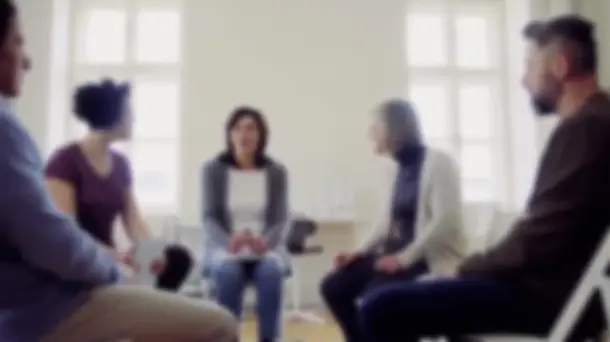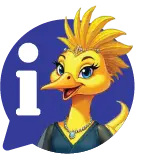Welcome to Narcotics Anonymous
What is our message? The message is that an addict, any addict, can stop using drugs, lose the desire to use, and find a new way to live. Our message is hope and the promise of freedom.

“When new members come to meetings, our sole interest is in their desire for freedom from active addiction and how we can be of help.”
It Works: How and Why, “Third Tradition”
Is NA for me?
This is a question every potential member must answer for themselves. Here are some recommended resources that may be helpful:
Need help for family or a friend?
NA meetings are run by and for addicts. If you're looking for help for a loved one, you can contact Narcotics Anonymous near you.
Subscribe to NAWS Emails
Sign up to receive Just for Today and SPAD daily meditation emails, as well as NAWS News, NAWS Updates, and more.
Never before have so many clean addicts, of their own choice and in free society, been able to meet where they please, to maintain their recovery in complete creative freedom.
Basic Text, “We Do Recover”
Recovery Quicklinks:
Service Quicklinks:
Narcotics Anonymous sprang from the Alcoholics Anonymous Program of the late 1940s, with meetings first emerging in the Los Angeles area of California, USA, in the early Fifties. The NA program started as a small US movement that has grown into one of the world's oldest and largest organizations of its type.
Today, Narcotics Anonymous is well established throughout much of the Americas, Western Europe, Australia, and New Zealand. Newly formed groups and NA communities are now scattered throughout the Indian subcontinent, Africa, East Asia, the Middle East, and Eastern Europe. Narcotics Anonymous books and information pamphlets are currently available in 49 languages.
Information About NA
Daily Meditations
Just for Today
December 07, 2025 |
Surviving our emotions |
| Page 357 |
| “We use the tools available to us and develop the ability to survive our emotions.“ |
| Basic Text, p. 31 |
| “Survive my emotions?” some of us say. “You've got to be kidding!” When we were using, we never gave ourselves the chance to learn how to survive them. You don't survive your feelings, we thought–you drug them. The problem was, that “cure” for our unsurvivable emotions was killing us. That's when we came to Narcotics Anonymous, started working the Twelve Steps and, as a result, began to mature emotionally. Many of us found emotional relief right from the start. We were tired of pretending that our addiction and our lives were under control; it actually felt good to finally admit they weren't. After sharing our inventory with our sponsor, we began to feel like we didn't have to deny who we were or what we felt in order to be accepted. When we'd finished making our amends, we knew we didn't have to suffer with guilt; we could own up to it and it wouldn't kill us. The more we worked the NA program, the better we felt about living life as it came to us. The program works today as well as it ever did. By taking stock of our day, getting honest about our part in it, and surrendering to reality, we can survive the feelings life throws our way. By using the tools available to us, we've developed the ability to survive our emotions. |
| Just for Today: I will not deny my feelings. I will practice honesty and surrender to life as it is. I will use the tools of this program to survive my emotions. |
A Spiritual Principle a Day
December 07, 2025 |
Keeping Our Minds Open to Learning |
| Page 353 |
| “Staying open-minded and teachable about our basic principles allows our understanding to deepen and mature.“ |
| Guiding Principles, Introduction, “In This Book” |
| Many of us go through a phase in early recovery in which we experience what some call “Peter Pan syndrome.” Like the fictional character who refuses to grow up, some of us set out to have the happy childhood that addiction stole from us. Making up for lost time may be a natural response to the new freedom we enjoy. The laughter and fun we share with other members is a big part of what keeps us coming back at any stage of recovery. But like so many things, we can take Peter's approach too far, refusing to act responsibly or to mature in our recovery. As we accumulate both age and cleantime, it can be a shock to realize that new members have us in mind when they refer to “our predecessors.” A member shared, “I stick by my definition of ‘oldtimer' as anyone who's clean at least five years longer than me. At some point, I noticed that I fit that description for others and that they looked to me for mentorship. I felt the need to know more and do better, so I started a Traditions study to help me live up to the predecessor label.” Also like Peter Pan, some of us might resist the idea of maturing, or we may reject the idea of pursuing a deeper understanding of our principles because we think it sounds, well, dull. Either stance might be an excuse for a closed mindset. Likewise, “this is the way we've always done it” doesn't exactly invite discussion or allow for the exploration of varying perspectives. Remaining teachable and open-minded, on the other hand, allows us to consider different perspectives through reading, discussion, and contemplation. With our minds open to learning more about our guiding principles, we often find new applications in our lives in and out of NA, as well as for our groups and in service. A member shared, “Before I really understood them, I viewed the Traditions as a rigid set of rules. I didn't grasp that by protecting us from our worst impulses, they create the conditions for creativity and freedom in service to NA.” |
| ——— ——— ——— ——— ——— |
| I will remain teachable, keeping my mind open to understanding our Traditions on a deeper level. As I mature in recovery, I will consider my responsibility to mentor others. |
Do you need help with a drug problem?
“If you’re new to NA or planning to go to a Narcotics Anonymous meeting for the first time, it might be nice to know a little bit about what happens in our meetings. The information here is meant to give you an understanding of what we do when we come together to share recovery…”
Subscribe to NAWS Emails
Sign up to receive NAWS Updates and NAWS News emails as well as Just for Today and SPAD daily emails.



